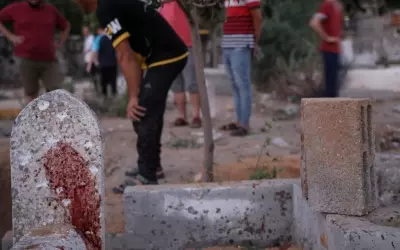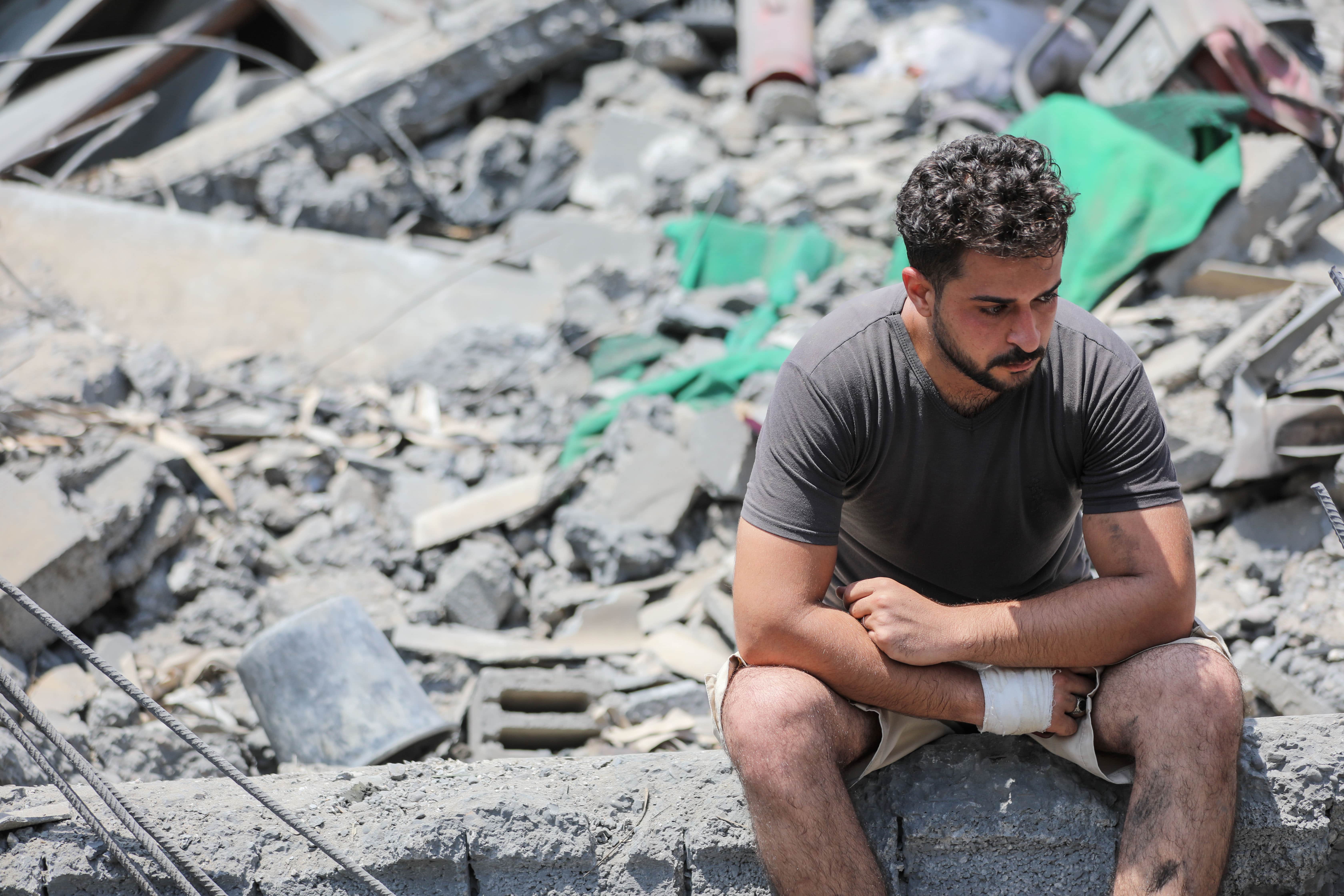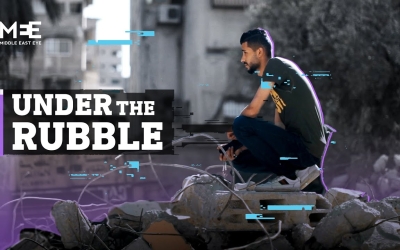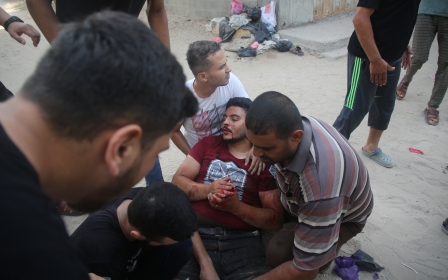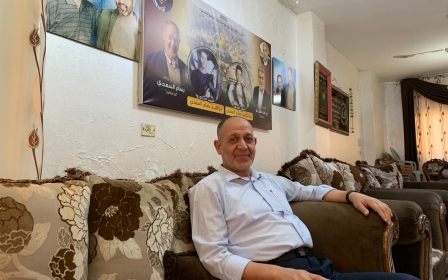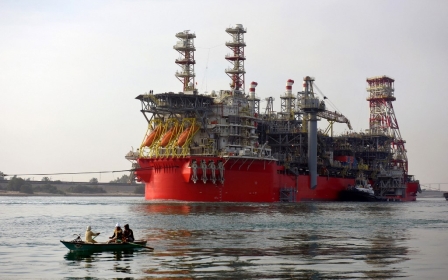Israel attacks Gaza to divide and conquer, with an eye on a gas field
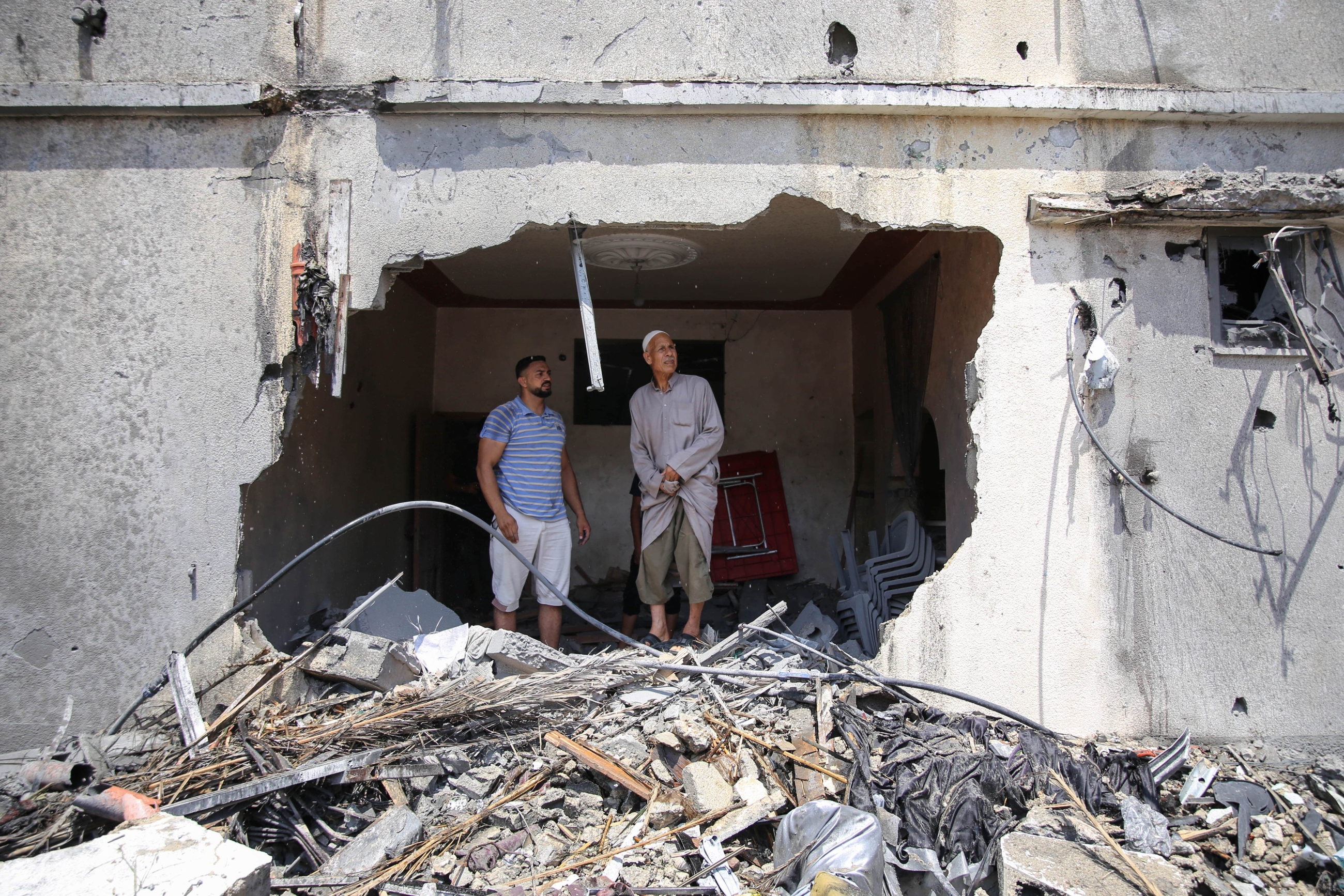
The Israeli attack on Gaza and the targeting of Palestinian Islamic Jihad (PIJ) leaders, as well as civilians, should have come as a surprise to no one.
The military build-up on the boundary with Gaza - putting settlements in the southern region under lockdown, bolstering forces and calling up as many as 25,000 reservist troops - did not represent defensive behaviour.
Nor was it necessary for the purportedly expected PIJ retaliatory response, after one of its senior leaders in the occupied West Bank, Bassam al-Saadi, was arrested on Monday from his home in Jenin in a manner that was insulting to him and the group.
Rather, the arrest itself was part of the preparation to launch new aggression to achieve several strategic goals, even if they are limited in scope.
Unfortunately, the Israeli moves were not read correctly by the Palestinian leadership, who were distracted by the state of panic and anger among Israeli residents of the locked-down towns.
But the truth of the matter lay not in Israel's voice but in its military and security arms, which were mobilising forces in a way that showed the Jenin arrest was a preliminary part of the aggressive escalation.
The Israeli public was indeed panicking, but in a country with such a formidable military arsenal, that is often a cause to launch preemptive attacks and not necessarily a retreat.
It would also be incorrect to link the assault to internal Israeli politics. This is completely in line with the rooted doctrine of aggression in Israel, and that is the strategy of the state, not just the prime minister.
This time, the goals seem to be to divide and conquer and weaken Iran's allies.
Creating friction
All indications suggest that Israel planned for this escalation in advance.
The army has reiterated that the goal of the operation, dubbed "Breaking Dawn," is limited to striking a blow to the PIJ alone.
It clearly wants a quick operation without the involvement of Hamas in the fighting, which if it happens, could open the battle wide open.
In this lies a fundamental challenge to Hamas, the de facto ruler of Gaza, and other factions within the Palestine Liberation Organization who might want to limit the fight due to the dire economic conditions in the besieged Strip.
By attempting to neutralise Hamas's role, and limiting the fight to the PIJ, Israel seeks to prevent unity among Palestinians and isolate the groups from each other.
But what Israel calls an attack against the PIJ is in fact aggression against the Palestinian people of Gaza.
At least 13 people have been killed in less than 24 hours and more than 114 have been injured. According to the Palestinian health ministry, nearly half of the casualties are women and children, including five-year-old Alaa Quadma, who was killed in the opening Israeli air strike of this operation on Friday afternoon.
The PIJ has called its counter strikes, which have included the firing of dozens of rockets so far, the "United Fronts" operation, suggesting that it too understands what the Israeli play is.
And while Israel had the upper hand in this battle by firing first, it will not be able to control the course and the length of the fight, or even the outcomes, despite the huge imbalance of power in its favour.
Eroding deterrence capabilities
The operation also comes at a time when Israel's deterrence capability against Palestinian groups in Gaza is failing.
This was evident in last year's war, dubbed the "Operation Guardian of the Walls" by the Israelis and the "Sword of Jerusalem" by Palestinians.
The 11-day battle, which left 256 Palestinians and 13 Israelis killed, ended with an Israeli feeling of failure and a Palestinian feeling of victory.
As such, the preparations for the current aggression began the moment last year's aggression ended.
In addition to the battle in Gaza, Israel faced an unprecedented uprising inside its mixed and historical cities, like Haifa, Acre, Lydd (known as Lod in Hebrew) and others, which took it by surprise.
The uprising, along with protests in Jerusalem against the Sheikh Jarrah evictions and assaults on worshippers in Al-Aqsa Mosque, cemented a sense of unity among all Palestinians.
Accordingly, the security and political establishments have been for months taking a series of measures to limit the ability of Palestinian citizens of Israel from demonstrating and mobilising with such force again.
These include the creation of government-backed militias, like the "civilian national guard," and the recruitment and deployment of more soldiers to serve in the army and more officers to serve in the paramilitary "Border Police" force.
Immediately after Israel launched its bombing campaign on Friday, police inside Israel raised the alert to the second-highest level, while Omer Bar-Lev, the minister of internal security, called up 10 companies of the "Border Police" to be on stand-by.
Meanwhile, the army continuously raids Jenin in the northern West Bank to deplete the armed Palestinian factions, in particular the PIJ, which has been growing in influence there.
Eye on the Karish gas field
Another reason to single out the PIJ is rooted in its close relationship with Iran.
There is a fundamental shift in the Israeli regional strategy, which its allies, among them some Arab regimes, are not willing to fight on Israel's behalf.
This strategy, as outlined by one of the candidates to become the new chief of staff of the Israeli army, Eyal Zamir, is focused on undermining Iran's influence in the region and its "proxy" allies.
Under this doctrine, Iran is seen as the main enemy for Israel, and the battle with it does not stop until Tehran's arms in the region are weakened. These include all Iran-backed paramilitary groups in Lebanon, Iraq, Syria and Yemen.
In this context, the PIJ, seen as the closest ally of Tehran in Palestine, becomes Israel's newest target.
However, it is important to note that amidst all of this, the top priority in Israel today is not Gaza, Jenin, Bassam al-Saadi and the PIJ. Rather, it is securing the Karish gas field, located in an area disputed with Lebanon.
Israel sees an opportunity in the Russian war in Ukraine that could allow it to export gas to Europe via this field and replace Moscow's supply.
Given its location in the disputed maritime territory with Lebanon, this may not be straightforward for Israel, with Hezbollah threatening the use of force to protect Lebanon's natural wealth.
US-mediated talks to find an agreement have been ongoing for months, but none seems to be within reach. Israeli reports say extraction work has been delayed until next month in the hope of finding a resolution before then. Otherwise, the threat of conflict will only grow.
As such, weakening the PIJ in this operation became even more necessary, as the group would likely join the fight in the event of a military confrontation with Hezbollah in the north.
In any case, the people of Gaza are the ones who have to pay the price once again for these Israeli violent games, the outcome of which will be determined by the Palestinian response.
The views expressed in this article belong to the author and do not necessarily reflect the editorial policy of Middle East Eye.
This article is available in French on Middle East Eye French edition.
Middle East Eye delivers independent and unrivalled coverage and analysis of the Middle East, North Africa and beyond. To learn more about republishing this content and the associated fees, please fill out this form. More about MEE can be found here.



